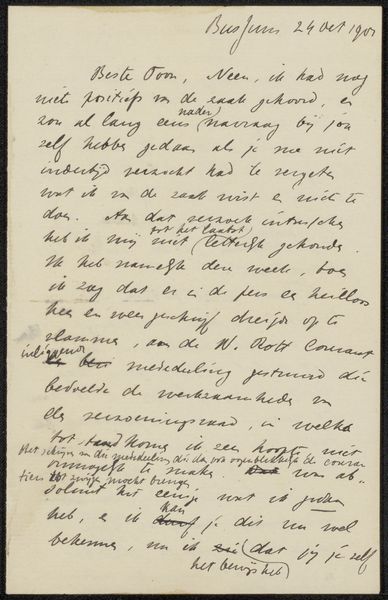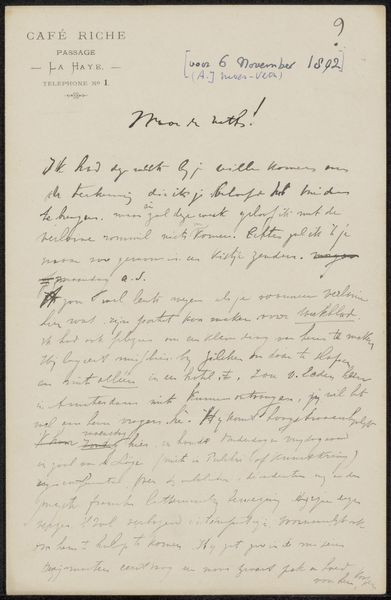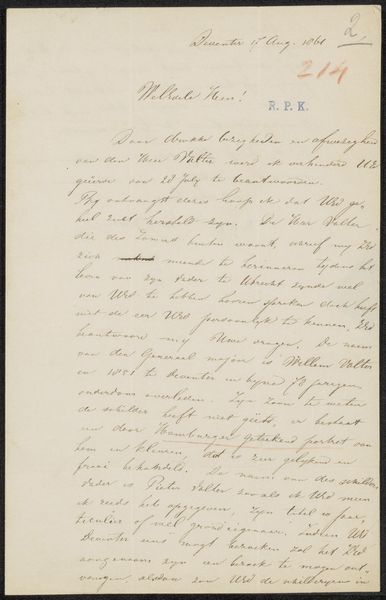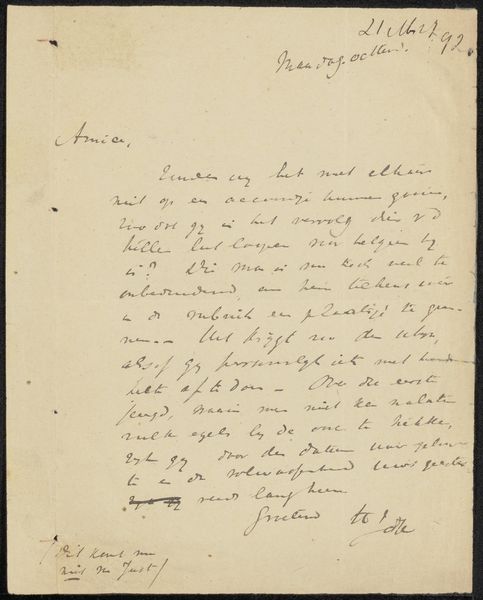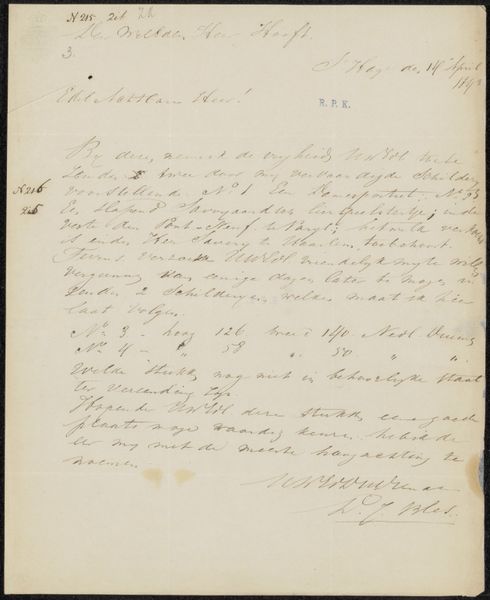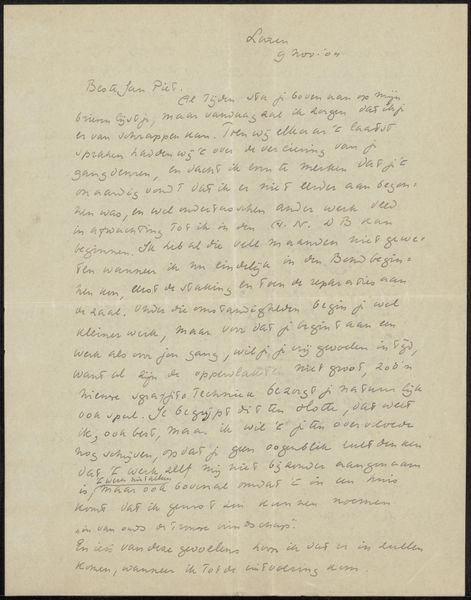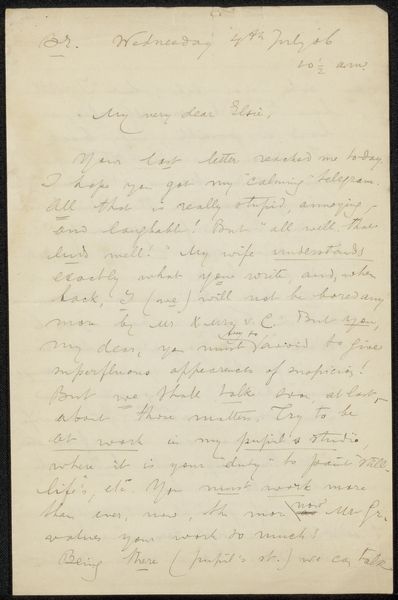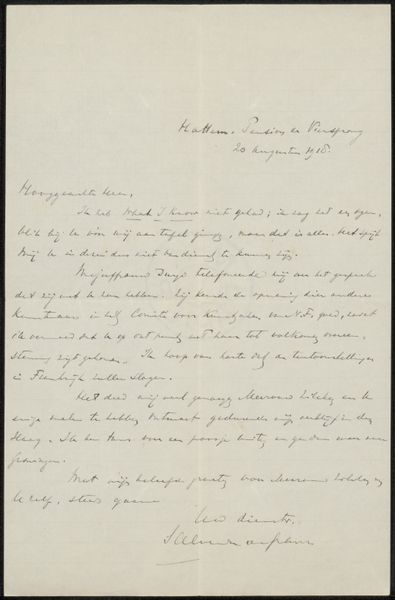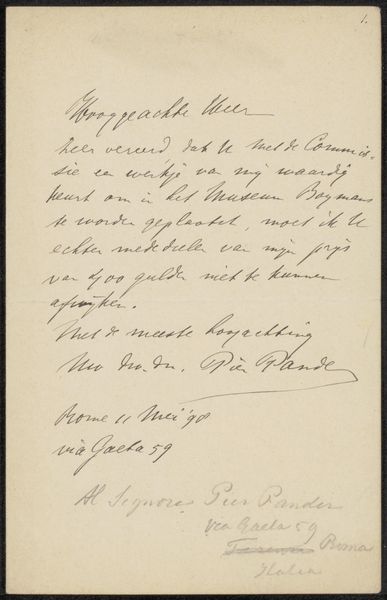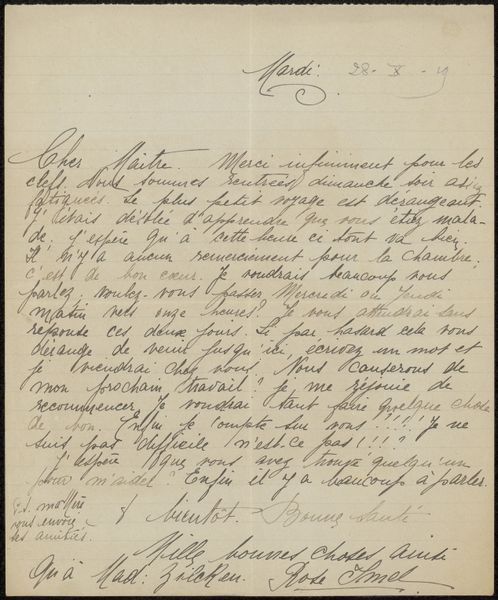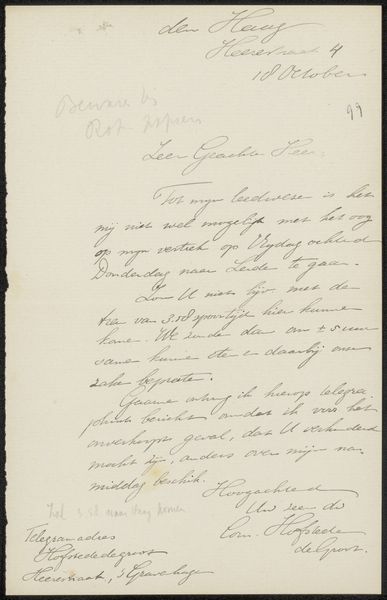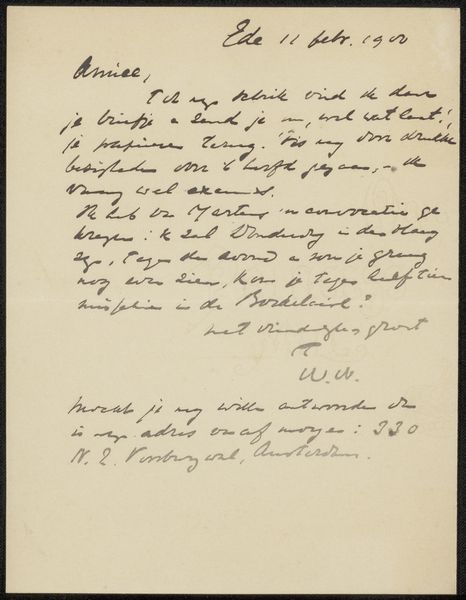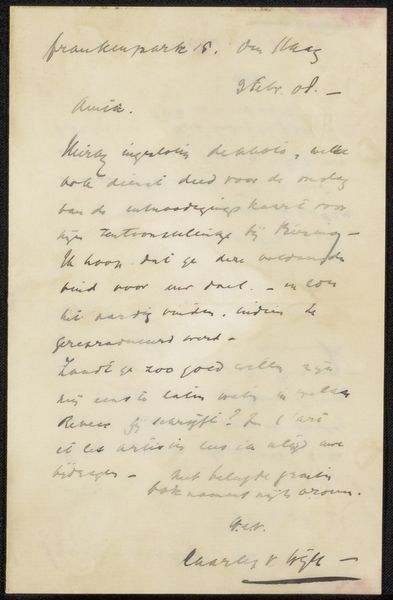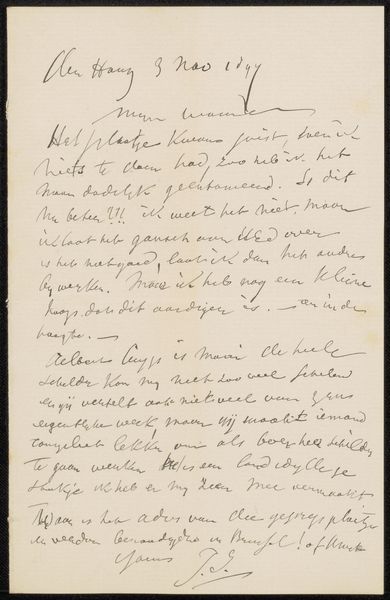
drawing, paper, ink, pen
#
drawing
#
dutch-golden-age
#
pen sketch
#
paper
#
ink
#
pen
#
calligraphy
Copyright: Rijks Museum: Open Domain
Editor: This is "Brief aan Christiaan Kramm," possibly from 1862-1864, by Alexander Ver Huell. It's an ink and pen drawing on paper at the Rijksmuseum. The script has a poignant air about it. How do you interpret this work? Curator: For me, a piece like this immediately opens a door into the socio-political world of the 19th century. It's not just about the beautifully rendered script, but about the act of correspondence itself – who was writing to whom, and what power dynamics were at play? Consider Ver Huell’s role within the context of Dutch society during this time. Editor: That's interesting. So, you see this letter as more than just personal correspondence? Curator: Absolutely. Letters like this can reveal hidden histories and marginalized voices. Think about literacy rates, who had access to education and the written word. Is this letter a testament to privilege? And how does it reflect larger colonial structures or the emerging national identity of the Netherlands? Who was Christiaan Kramm and what was their relationship to the author? Editor: It does make you think about the historical context. Curator: Exactly! By considering the intersections of class, gender, and access to information, we can uncover new meanings within even the simplest of documents. Don't you think it almost becomes an activist piece through its mere survival and accessibility today? Editor: I hadn't thought of it that way before, but I see what you mean. It prompts a lot of questions about Dutch society and the roles of those writing and receiving such correspondence. It makes you rethink how art can exist outside paintings and sculpture.
Comments
No comments
Be the first to comment and join the conversation on the ultimate creative platform.
